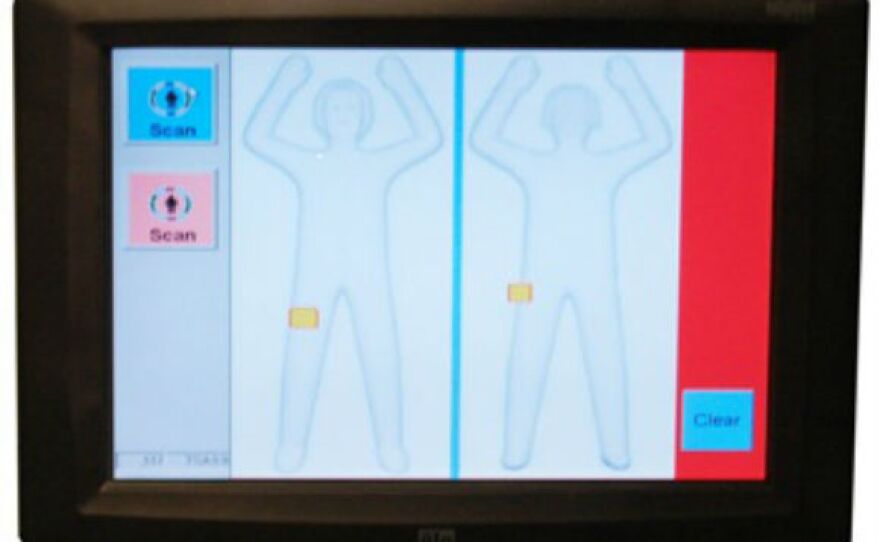The first of four new body scanners has arrived at Austin’s airport, courtesy of the Transportation Security Administration (TSA). Austin-Bergstrom International Airport officials say the scanner is not yet operational. They did not have specifics of when it would be, but a news release said they would be up and running "over the coming days."
Body scanners are controversial. Some state lawmakers have called them a violation of privacy. But the TSA says Austin is getting new so-called Advanced Imaging Technology machines. They do not use X-rays, and they come equipped with new software which officials say is less invasive.
“We have recently upgraded these machines with new software, which is called automated target recognition," the TSA's Carrie Harmon said. "It allows the machine to depict anomalies on the passenger but instead of using an actual image of the passenger, it just has a generic outline of a person displayed on the monitor.”
The TSA initially rolled out some 250 x-ray body scanners, known as backscatter units, in other airports. Those do use x-rays, but the TSA contends they are safe and emit very small doses of radiation.
Michael Grabell with the non-profit news organization ProPublica has been researching body scanners and says the U.S. government glossed over cancer concerns when it rolled out airport x-ray scanners.
“What we found is while the machine does emit an extremely low level of radiation, this authoritative report on low levels of radiation says that there is no level of radiation that does not increase the risk of cancer. So that kind of raised some questions, we found some scientific studies that looked at how many cases could arise and the range was from six to 100 cases of cancer based on the number of people who fly every year,” Grabell told KUT News.
The TSA says the new AIT scanners use millimeter wave technology, which emits thousands of times less energy than a cell phone transmission, but it may have other drawbacks.
“The German government discontinued their use, their test of the millimeter wave machine, after concluding that it had too many false positives depending on the type of clothing," Grabell said. "Others have raised questions about whether sweat gives you a false alarm."
More than 500 of the new Advanced Imaging Technology scanners have been issued to more than 90 airports across the nation. Austin’s first body scanner will be placed at the passenger screening checkpoint next to the American Airlines ticketing counter.



